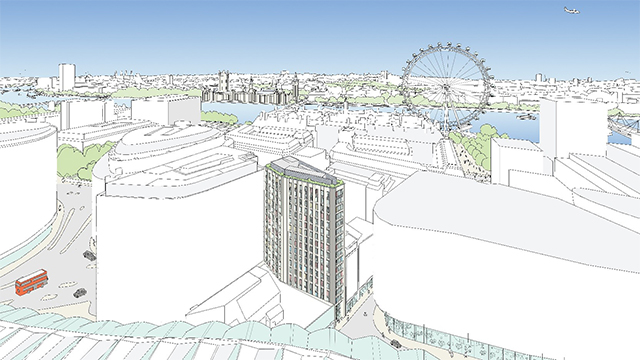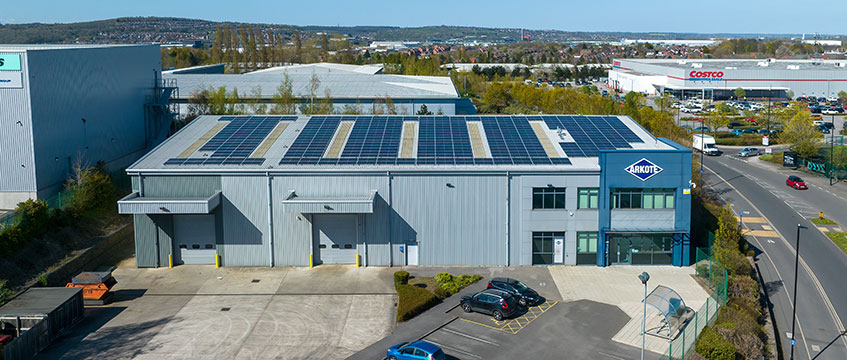Berlin-based GSW Immobilien seems to have become highly acquisitive in the last quarter of the year after a quiet first nine months.
In October, the company assembled a 4,400-unit Berlin residential portfolio in three parcels bought from different vendors for an amount totalling €200m. As if that were not quite a lot to digest, just a month later, the company snapped up a 2,600-unit German residential portfolio for €147m from Erlangen-based ZBI Zentral Boden Immobilien.
“The portfolio fits in with our existing assets,” says GSW’s chief operating officer, Jörg Schwagenscheidt. “And it is always good to buy properties with higher rents than the properties in our current portfolio.”
Rent rise potential
The rent roll of the properties acquired is about €5.40 per m2 and the buildings have an average vacancy rate of 1.6%. The properties date from 1919 to the 1949 which, according to the Berlin Mietspiegel, the body that regulates German rent levels, is the asset group with the highest potential for rental increase, Schwagenscheidt says.
With its purchase of the two portfolios, the firm has exceeded its target of acquiring between 5,000 and 6,000 residential units in Berlin and also topped 2011’s 4,832 units acquired. This year’s acquisitions were financed by means of a capital increase of €201.8m in April and the issue of a convertible bond that raised €182.9m in November.
In April the company issued about 9.5m new shares for a subscription price of €21.3 per new share. The convertible bonds, placed in November, were issued at 100% of their principal amount. Sold at an initial conversion price of €36.105, the annual coupon was set at 2% and the initial conversion premium was fixed at 22.5%.
The bonds are convertible into around 5.1m new ordinary bearer shares of GSW Immobilien.
Although GSW was in the enviable position of being able to finance these portfolio acquisitions using equity, the company is not opposed to leverage and is considering that for a later date.
And, despite having bought up such a large amount of property so recently, GSW is in negotiations for a number of smaller and mid-sized residential portfolios in Berlin.
“The company has still sufficient liquidity for further acquisitions,” Schwagenscheidt says. The deal for which negotiations are at the most advanced stage would bring in between 300 and 500 units. However, Schwagenscheidt has doubts that the planned transactions will take place before the end of the year.
While busy negotiating new deals, GSW will also soon start to look for a buyer for parts of the 2,600 unit portfolio that it acquired in November.
The reason is that a small portion of the portfolio, about 470 units, is located outside Berlin – where GSW is entirely focused -in Duisburg, Essen and Magdeburg. Nevertheless, the company is not under pressure to sell the assets in a hurry because they are managed by an external asset manager, reports Schwagenscheidt.
“We are planning to sell the properties at some point in the next two years,” he says.
The company predicts that the portfolio expansion will have a positive impact on operating margins and funds from operations (FFO) beginning in 2013.
“We expect an FFO increase of €14.5m to €15.5m,” says Schwagenscheidt.
A substantial boost
That is a substantial boost. GSW reported an FFO of €50m in its nine-month report of 30 September 2012, representing an increase of €10m above the same period in 2011. The firm’s adjusted EBITDA rose from €86.4m in the first nine months of 2011 to €100.7m between January and September 2012. These results were driven by higher rental income, which rose by 17.6% from €102.8m in the first nine months of 2011 to €120.8m in same period in 2012, said GSW.
As of 31 December 2011, the company had assets under management of €2.9bn, an amount which will have changed in the meantime owing to a number of small sales. The major portfolio acquisitions will transfer into GSW’s portfolio in January 2013.
However, portfolio gains and sales were not the only changes the company underwent in 2012. In September, GSW sold its residential property manager, BWG, to STRABAG Property and Facility Management. BWG manages more than 22,000 residential investors. Following the sale of the property management division, GSW manages its own assets.
Asked about the outlook for Berlin’s property market, Schwagenscheidt says that he does expect residential property prices to increase further. Vacancy rates will fall and rents will rise but, he says, “I do not expect a housing bubble as the market is not driven by speculation. Property prices for larger residential portfolios might increase up to 16 or 17 times the annual rent but I do not expect prices to rise to 20 times as is the case in the condominium market.”
www.gsw.de










